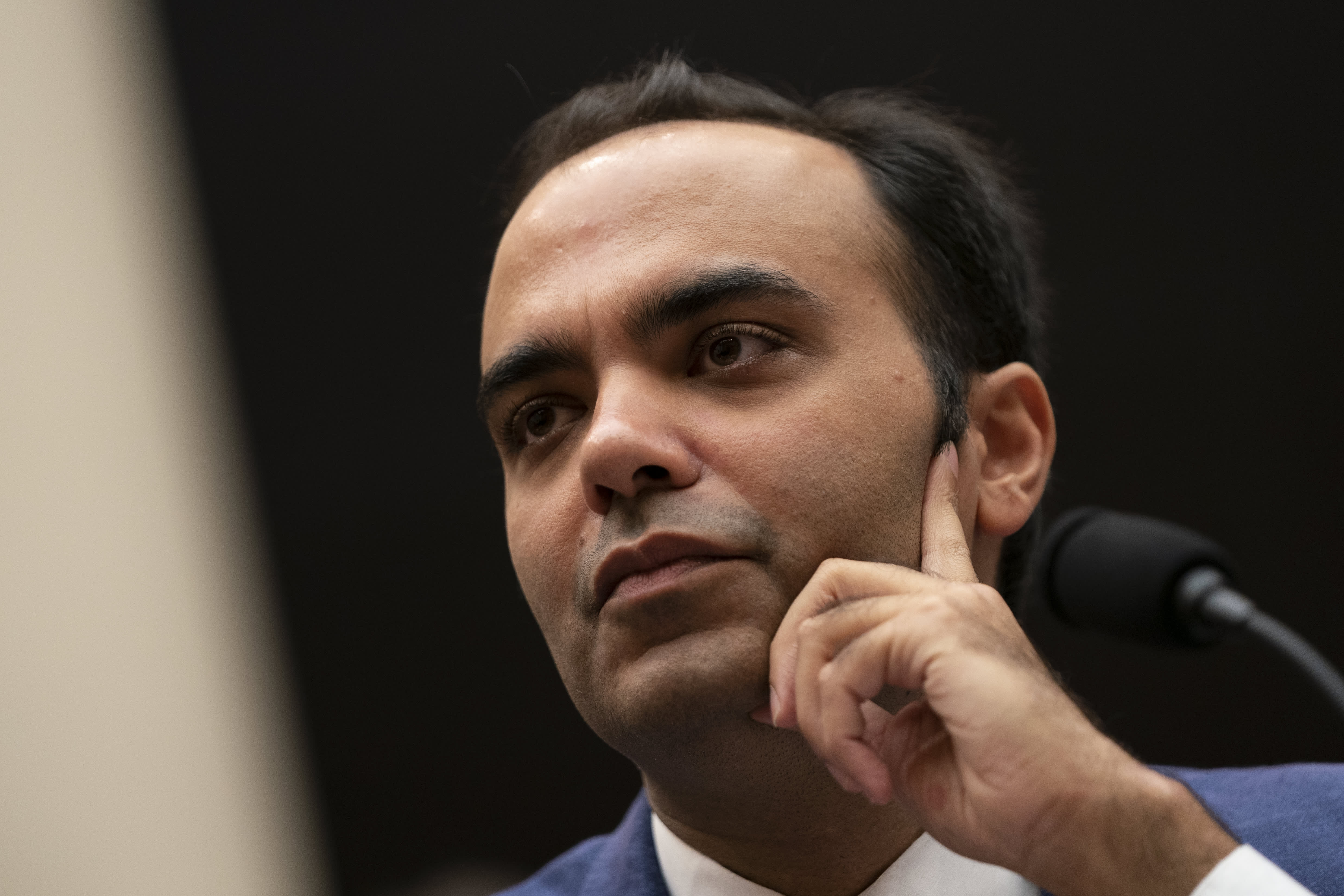Products You May Like
The Consumer Financial Protection Bureau is cracking down on banks charging fees for customers who overdraw their checking accounts, the bureau announced Wednesday.
The financial watchdog is planning a “range of regulatory interventions” targeting firms that rely heavily on overdraft fees as a revenue source, Rohit Chopra, director of the CFPB, said in a press call.
Overdrafts occur when customers don’t have enough funds in their accounts to cover a transaction. Banks may allow the transaction to proceed, but charge a fee to cover the cost.
Charging for overdrafts and non-sufficient funds is a big money maker for banks, and has continued during the Covid-19 pandemic, Chopra said. Banks earned more than $15 billion from such charges in 2019, a figure that has risen steadily, according to the bureau.
More from Personal Finance:
Must-know changes for the upcoming tax season
More than half of employers to require Covid vaccines as omicron fears grow
Why Social Security retirement claims haven’t surged amid Covid-19
The fees, typically around $34 for each overdraft, largely impact families who can least afford them, Chopra said.
“Banks, especially big banks, continue to rely on overdraft and [non-sufficient funds] fees as a major source of revenue,” Chopra said. “Rather than competing on transparent upfront pricing, large financial institutions are still hooked on exploitative junk fees that can quickly drain a family’s bank account.”
The CFPB, a federal agency created by the Dodd-Frank financial reform law in the aftermath of the Great Recession, will increase its oversight of banks “heavily dependent” on overdraft fees, according to the Wednesday announcement.
Officials didn’t quantify what constitutes heavy reliance on overdraft fees. The agency will tell firms how they measure against peers, Chopra said.
The market won’t solve this on its own.Rohit Chopradirector of the Consumer Financial Protection Bureau
The agency’s oversight will come via additional supervisory and enforcement scrutiny, according to the bureau.
The agency will take action against large banks with overdraft practices that violate the law, and officials will prioritize examinations of banks heavily reliant on overdrafts, Chopra said.
Officials declined to outline whether it will take additional steps to curb the practice.
Banks continued to charge overdraft fees during the Covid-19 pandemic, and shareholders enjoy a predictable, steady revenue stream from them, Chopra said.
Three banks — JPMorgan Chase, Wells Fargo and Bank of America — accounted for about $5 billion, or 44%, of total overdraft fees collected in 2019, according to the CFPB.
Of course, not all banks charge customers for overdrafts. For example, Ally Bank, an online bank, got rid of overdraft fees earlier this year. And other firms, including PNC Bank and Bank of America, have made it tougher for customers to overdraw their accounts.
Capital One said Wednesday that it is eliminating all overdraft fees for retail banking customers starting in 2022. It’s the largest U.S. bank yet to end the industry practice. The bank expects to lose $150 million in annual revenue as a result.
Chopra said he’s not expecting other banks to follow in the near term.
“The market won’t solve this on its own,” Chopra said. “We have a clear market failure here,” he added.
A small share of households account for the bulk of overdraft revenue. About 9% of consumer accounts pay 10 or more overdrafts per year, accounting for close to 80% of all overdraft revenue, according to the CFPB.
The bureau will also “harness technology” to make it easier for customers to change banks, a difficult task due to the need to update information like automatic debits with many sources, Chopra said. He advocated for an “open banking infrastructure” in the future to make this easier, but didn’t detail how or when this might come to fruition.
